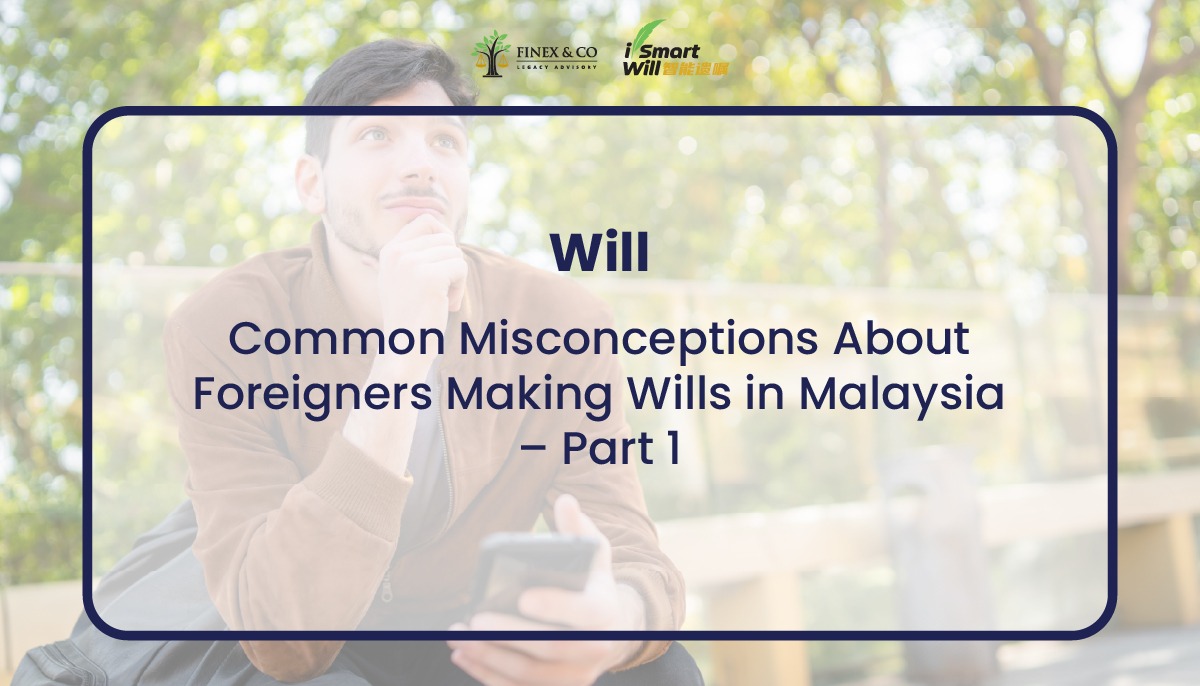If you are a foreigner who owns assets in Malaysia such as property, bank accounts, or investments, making a will here is an important step in safeguarding your loved ones’ future. Many foreigners are uncertain about the legal requirements, particularly if they already have a will in their home country that may cover assets in Malaysia.
To clear things up, here are the ten most commonly asked questions about foreigners making wills in Malaysia.
1. Can a foreigner make a will in Malaysia?
Yes. Under the Wills Act 1959, any non-Muslim over the age of 18 (or 21 in Sabah) who is of sound mind can make a will in Malaysia. The Act does not restrict the nationality of the person making the will in Malaysia.
2. If I already have a will in my home country, do I still need a Malaysian will?
If you already have a will in your home country, it does not automatically mean your Malaysian assets will be smoothly dealt with. In Malaysia, the executor must either reseal the foreign grant of probate (if the will was proven in a Commonwealth country), or apply for a fresh probate in Malaysia (if it was proven in a non-Commonwealth country such as China, Indonesia, or Vietnam).
This extra process can be costly and time-consuming. To avoid complications and delays for your family, it is advisable to prepare a separate Malaysian will that directly governs your local assets.
3. Can one will cover both my Malaysian and overseas assets?
While a Malaysian will can be drafted to include your overseas assets, in practice this often creates difficulties. Different countries have their own succession laws and probate requirements. A Malaysian will may not be recognised abroad, meaning your foreign assets could end up distributed under that country’s intestacy laws.
Even if it is accepted, your family would need to extract probate in Malaysia before applying for resealing or recognition overseas (a process that is both lengthy and expensive). This is why we usually recommend preparing separate wills in each country where you hold significant assets. That way, each will is tailored to the local law and can be administered more efficiently.
4. Can my foreign family members inherit my Malaysian assets?
Yes. Foreign family members can legally inherit Malaysian assets under a valid will or, if there is no will, through the Distribution Act 1958. There is no restriction based on nationality.
However, practical issues may arise, for example:
- If the inheritance involves property, the beneficiary must comply with Malaysia’s restrictions on foreign property ownership (e.g., obtaining consent from Land Office).
- For cash assets, transferring funds abroad is generally allowed but may involve banking procedures and documentary requirements.
Having a Malaysian will ensures that the inheritance process is smoother and avoids unnecessary delays.
5. If my beneficiary is overseas, do they need to come to Malaysia?
No, your beneficiary does not necessarily need to come to Malaysia. The Executor can handle the estate administration and transfer the assets to your beneficiary overseas.
This concludes Part 1 of our article. In Part 2, we will address further practical questions, including whether foreigners can act as executors, whether witnesses must be Malaysians, whether wills need to be registered, language requirements, and what happens if a foreigner dies in Malaysia without a will.
You may make an appointment with our legal advisor here: https://calendly.com/finex-and-co-legacy-advisory/tea-talk-with-legal-expert















